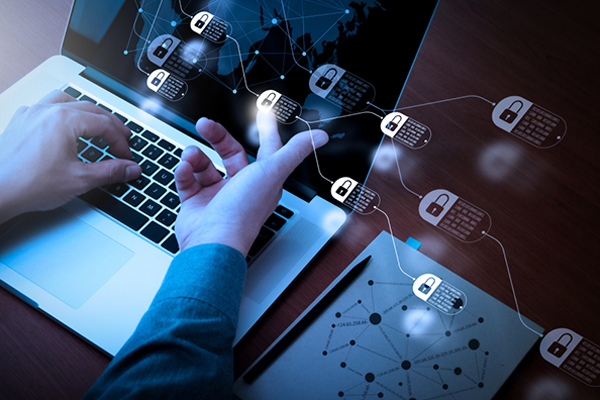Using Blockchain to Certify and Strengthen Online Learning
New technologies tend to receive a lot of buzz and momentarily become the topic du jour for blogs, conferences and industry media, only to recede from the headlines when the next hot innovation comes along. Blockchain certainly qualifies as an intermittent catchword in digital design and delivery, if not currently front-of-mind for learning leaders. Fortunately, there are now real applications for blockchain in learning and development to bring it back to the fore of the conversation.

True to its name, Blockchain is a chain of blocks linked together using unique codes. Blocks are effectively individual pieces of information stored on a network of systems, called a chain. Each block contains limited data, along with the secured code values for the current and previous blocks. When a block receives new data, it gets added to the existing blockchain. A blockchain is decentralized, traceable, and immutable—traits which are triggering innovative applications in the learning sector.
Preventing fraud
Some organizations, particularly universities, have already started using blockchain technology to support education certificate management and to reinforce online learning. For example, the Massachusetts Institute of Technology (MIT) and Learning Machine several years ago developed Blockcert—an open-source toolkit—to issue and verify blockchain-encrypted credentials. As students steadily move to online courses, educational institutes face new risks, such as major academic certificate fraud. This risk can be easily managed using a blockchain-based system that can verify academic credentials at various levels of cybersecurity.
Since the data stored on a blockchain is encrypted, only genuine certificate holders can access and share it using a link via email or social media. Further, a blockchain does not store its information in a central system. It is decentralized or spread across the network. This makes the task of tampering with information or updating the systems in a network nearly impossible. Blockchain can also help organizations verify an employee’s qualification details to detect exaggerated grades or falsified degrees in their profiles.
Protecting data
With the paradigm shift from traditional training to a dependency on eLearning, this rapid adaptation has raised many issues. There is a lack of secure logs of the eLearning process, misuse of learners’ and instructors’ sensitive data, bad cross-platform collaboration, and problems in verifying learners’ credentials.
Blockchain-based online learning platforms can be used to avoid these problems. These systems protect online content sharing across the platforms and encourage standardization of content across institutions and organizations. A decentralized blockchain-based system ensures that only authorized users access sensitive data. Smart contracts and tokens on blockchain execute transactions based on the exact use of content. These platforms also securely issue and share learners’ credentials, which can be easily verified by recruiters, instructors, and organizations.
Reinforcing learning
As employers invest in online learning to improve workforce skills and knowledge, such courses empower learners to control how, when, and where they learn. Course completion, however, can rely entirely on a learner’s level of motivation. Without a clear goal or reward, these assignments could be regarded as a burden instead of an opportunity.
Blockchain can increase learners’ knowledge retention rate by offering rewards, such as tokens for completing courses within a given timeframe. Such tokens can then be used in the future as a mode of payment for other course subscriptions. A completion reward, in addition to the grade, can motivate learners to remain disciplined and follow through with the course, increasing knowledge acquisition and retention.
Tailoring experiences
Blockchain security and authentication can be further supported by machine learning technology to personalize learning for individual users. Machine learning studies how a learner grasps new information by using algorithms and then ensures that the learner moves ahead only after understanding the previous content. Systems using machine learning analyze the information taught in the course and confirm whether it is up to standard and aligned with learners’ proficiency. It also allows teachers to individually monitor progress and help them identify areas for improvement.
There is more potential in blockchain still waiting to be unlocked. Effective use of this technology is proving to make our learning ecosystem more efficient, effective, and secure.
To learn more about how KnowledgeWorks Global Ltd. can help you create interactive workforce learning solutions, please contact: info@kwglobal.com.

